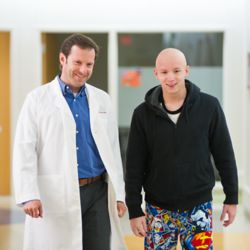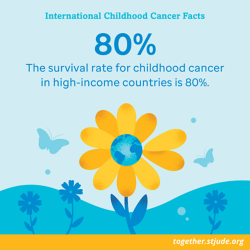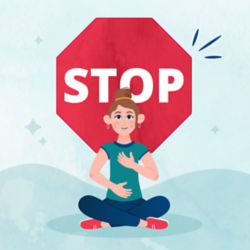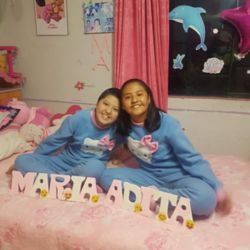My Cancer Survivor Story: The Price of Survival
I have been a Hodgkin lymphoma survivor for 60 years. If you’re a childhood cancer survivor, that’s probably before you were even born. In the past 6 decades, I’ve learned a few things that I hope will help you on your journey.
Smile, laugh, dream
In 1962, cancer treatments were harsh. Yet even as a patient, I managed to have some fun. I met famous comedians such as the Three Stooges and Danny Thomas. My parents supported me with love and extra attention. I remember that my mom slept in a recliner beside me each night in the hospital.
During treatment, I dreamed of the day when I could get back to school and start playing baseball again. I wanted to do all the things that other kids could do. But I also knew the stakes were high. In that era, few kids with cancer survived.
Have patience with yourself
After finishing cancer therapy, I had to learn how to walk again. I quickly realized that you don’t bounce back overnight from cancer treatment. It takes time, but you must keep the faith. You have to realize that you’ve been given a second opportunity and take full advantage of that. And you must never give up.
Eventually, I attended college, married my high school sweetheart, and had two wonderful kids. I dedicated my life to serving others—first as a law enforcement officer and later as a state representative. But I wanted to do more. I wanted to help the next generation of cancer survivors. I found a way to do that by enrolling in survivor studies.
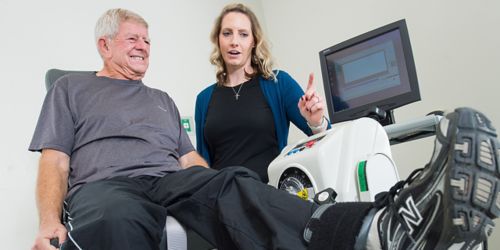
After cancer therapy, cancer survivor Dwight Tosh had to learn how to walk again.
Watch for long-term effects
As a childhood cancer survivor, I know it is important to have regular checkups and to share my survivorship plan with my doctors. That vigilance has paid off.
Over the course of my lifetime, I’ve had a few health issues. These include high blood pressure, hip replacement, and diabetes. When I was in my late 40s, I had heart surgery. A few years later, I got bladder cancer. Because I was diligent about having regular checkups, doctors were able to catch the cancer early. There was no need for radiation or chemotherapy.
Through the years, I wondered: Did my childhood cancer treatment—the chemo, the radiation—have anything to do with any of these health issues?
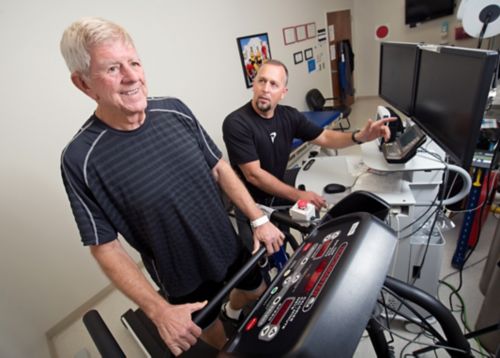
Dwight Tosh suggests enrolling in cancer survivor studies.
Enroll in survivor studies
When my hospital began a program to study the long-term effects of childhood cancer treatment, I was the first to sign up. By volunteering for survivor studies, I helped scientists discover more about the long-term effects of treatment. Plus, I learned more about my own health.
I found out that some of my health problems are due to my childhood cancer treatment. For instance, I have had nerve pain in my feet for many years. The same chemotherapy that cured my cancer also caused that neuropathy.
A few of my health issues are likely due to heredity, lifestyle, and age. But doctors are still unsure about the origins of other problems I have had. Scientists are looking at the data to find out whether a link exists. What they learn may help them better understand the health risks for other childhood cancer patients.
The long-term survivor studies remind me of the importance of having regular health checkups and leading a healthful lifestyle. But most of all, they allow me to help others—both now and in the future.
I’m grateful for the opportunities I have had throughout my life. If there is anything I can do to prevent some mom or dad from having to say goodbye to their child, then I stand ready to do that. I never want to get so busy that I forget why I’m able to live the life that I’m able to live.


